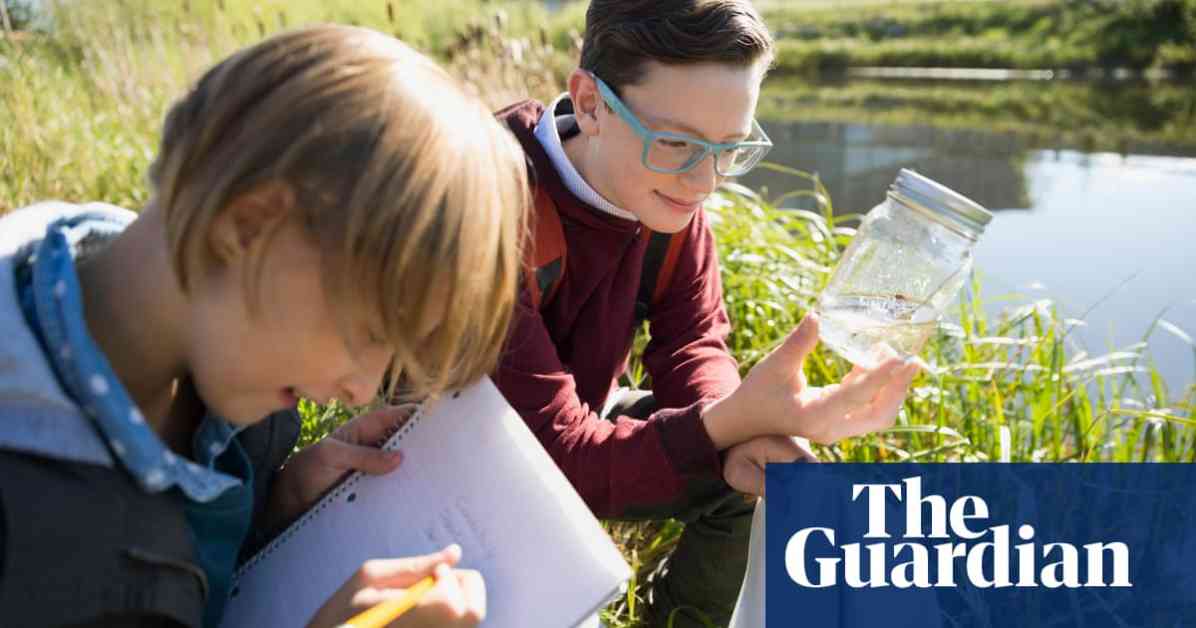Teenagers across England, Wales, and Northern Ireland may soon have the opportunity to delve into the fascinating world of newts, bats, and jumping spiders with the anticipated launch of a GCSE in natural history. After years of advocacy from nature enthusiasts, the Department for Education has confirmed the introduction of this qualification, aiming to equip young learners with a deeper understanding and appreciation of the natural world to support environmental protection and conservation efforts.
The announcement of the new natural history GCSE by Education Minister Catherine McKinnell in parliament has stirred excitement among environmentalists and educators alike. Mary Colwell, a prominent naturalist and author who has been championing the cause since 2011, expressed her delight at the news. She emphasized the significance of education in fostering a society that values and preserves the planet, echoing the sentiments of renowned naturalist David Attenborough, who has called for a rekindling of humanity’s connection with Earth.
Colwell’s advocacy for the natural history GCSE aligns with the sentiments of many experts in the field, including Dr. Doug Gurr, Director of the Natural History Museum. Dr. Gurr emphasized the importance of integrating climate and nature education into the curriculum, ensuring that young individuals have the opportunity to deepen their knowledge of the biodiversity surrounding them. The museum’s scientists have actively contributed their expertise to shape the subject content of the GCSE, emphasizing the value of hands-on fieldwork experiences in understanding local wildlife.
As the government prepares to consult on the specifics of the GCSE’s curriculum, experts like former Green Party MP Caroline Lucas stress the importance of ensuring that the subject criteria are comprehensive and engaging. Lucas emphasizes the need for students to actively engage with their local ecosystems and wildlife, fostering a sense of connection to the broader environment. She advocates for the inclusion of arts in the qualification, highlighting the holistic approach needed to maximize the impact of the GCSE on young learners.
Expert Insights on the Natural History GCSE
The initiative to introduce a natural history GCSE has garnered widespread support from various stakeholders, highlighting the growing recognition of the importance of environmental education in shaping future generations. Experts across the field of conservation, education, and policy view the GCSE as a crucial step towards nurturing a generation of environmentally conscious individuals who are equipped to address the pressing challenges of climate change and biodiversity loss.
Dr. Jane Goodall, renowned primatologist and UN Messenger of Peace, commended the UK government’s decision to introduce the natural history GCSE, emphasizing the role of education in empowering young people to become stewards of the natural world. She remarked, “Understanding the intricate web of life on Earth is essential for building a sustainable future. This GCSE will provide students with the knowledge and skills needed to protect our planet for generations to come.”
The Natural History GCSE has the potential to transform the educational landscape, offering students a unique opportunity to explore the wonders of the natural world while fostering a sense of responsibility towards environmental conservation. By integrating scientific knowledge, fieldwork experiences, and artistic expressions, the qualification aims to inspire a new generation of environmental advocates who are deeply connected to the ecosystems that sustain life on Earth.
As the government proceeds with the consultation process and finalizes the curriculum for the natural history GCSE, the anticipation among educators, students, and environmentalists continues to grow. The launch of this qualification represents a significant milestone in the journey towards creating a more sustainable and ecologically conscious society, where individuals are equipped with the knowledge and values to protect and preserve the biodiversity that enriches our planet.
The natural history GCSE is not just a new qualification; it is a beacon of hope for a future where humanity coexists harmoniously with nature, guided by a profound appreciation for the intricate beauty and resilience of the natural world. Through education, exploration, and engagement, young learners have the opportunity to embark on a transformative journey that transcends textbooks and classrooms, instilling a lifelong passion for environmental stewardship and ecological integrity.







